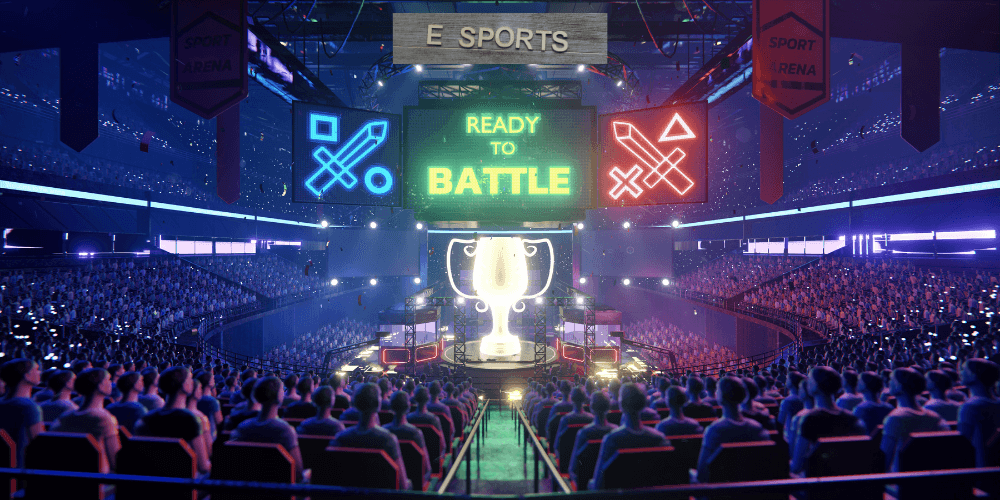The world of gaming and esports is a dynamic, ever-evolving universe that has captured the attention of millions worldwide. From casual players enjoying mobile games on their commutes to professional esports athletes competing for massive prize pools, the spectrum of gaming is incredibly diverse. Let\’s delve into the latest trends, popular games, the competitive scene, and the digital landscape\’s impact on our culture and entertainment.
The Latest Trends in Gaming
Gaming is an industry that thrives on innovation and pushing boundaries. Here\’s what\’s making waves:
- Cloud Gaming: Services like Google Stadia, NVIDIA GeForce Now, and Xbox Cloud Gaming are changing how we access games, eliminating the need for expensive hardware and enabling seamless play across devices.
- Virtual Reality (VR) and Augmented Reality (AR): These technologies offer immersive experiences, blurring the lines between the real and digital worlds. Games like Half-Life: Alyx and Pokémon Go have shown the potential of VR and AR in gaming.
- Cross-Platform Play: The ability to play with friends across different platforms (PC, Xbox, PlayStation, etc.) is breaking down barriers and creating more connected gaming communities.
- Esports as Mainstream Entertainment: Esports tournaments now fill stadiums, attract major sponsorships, and are broadcast on major networks, rivalling traditional sports in viewership and engagement.
- Mobile Gaming Dominance: The convenience and accessibility of mobile games have made them the most popular form of gaming globally. Titles like PUBG Mobile, Genshin Impact, and Call of Duty Mobile have taken the world by storm.
Popular Games Across Genres
The gaming world offers something for everyone. Here\’s a look at some of the most popular titles:
- Battle Royale: Fortnite, Apex Legends, and Call of Duty: Warzone continues to draw massive player bases with their fast-paced, last-person-standing gameplay.
- Multiplayer Online Battle Arenas (MOBAs): Many MOBAS, like League of Legends Dota 2, remain titans of the esports scene, boasting complex gameplay and dedicated communities.
- First-Person Shooters (FPS): Valorant, Counter-Strike: Global Offensive (CS: GO) are competitive mainstays known for their tactical depth and high-skill ceilings.
- Open-World Adventures: Games like Elden Ring, Red Dead Redemption 2, and many more offer expansive worlds to explore and captivating stories to experience.
- Role-Playing Games (RPGs): Titles like Final Fantasy XIV, Genshin Impact, and Baldur\’s Gate 3 offer rich character development and immersive narratives.
The Competitive Gaming Scene
Esports is the thrilling world of professional competitive gaming. Here\’s what makes it so captivating:
- Professional Teams and Leagues: Esports organizations like FaZe Clan, Team Liquid, and Cloud9 field rosters talented players who compete in the League Championship Series (LCS) for League of Legends or the Overwatch League.
- Massive Prize Pools: Top-tier esports events offer millions in prize money, attracting the best talent worldwide.
- Global Tournaments: Events like The International (Dota 2), the League of Legends World Championship, and the Fortnite World Cup are watched by millions and celebrate the pinnacle of competitive gaming.
The Future of Esports
The future of esports looks brighter than ever:
- Continued Growth: Esports viewership and revenue are projected to grow, with new games and leagues emerging.
- Mainstream Acceptance: Esports is gaining wider acceptance as a legitimate sport, with more traditional sports organizations and investors getting involved.
- Technological Advancements: New technologies like VR and AR could revolutionize how esports is played and experienced.
- Expansion into New Markets: Esports is expanding into new markets like mobile gaming and countries with growing gaming communities.
Challenges Faced by Esports
Despite its rapid growth, esports faces some challenges:
- Player Burnout and Health Concerns: The demanding nature of professional gaming can lead to burnout and physical health issues for players.
- Diversity and Inclusion: Esports struggles with a lack of diversity, particularly regarding gender representation at the professional level.
- Regulation and Governance: The need for standardized rules and regulations across different games and leagues can create consistency and certainty.
- Sustainability: Some question the long-term sustainability of the esports model, as the industry relies heavily on sponsorships and viewership.
The Impact of Gaming and Esports
Gaming and esports have a profound impact on our culture:
- Entertainment and Community: Gaming provides entertainment that fosters social connection, allowing people to play together, share experiences, and build communities.
- Economic Growth: The gaming industry is a significant economic driver, generating billions in revenue through game sales, merchandise, and esports events.
- Career Opportunities: Esports athletes, game developers, streamers, casters, and content creators have found fulfilling careers in the gaming world.
Conclusion
Esports and gaming are more than just hobbies; they\’re cultural phenomena that connect people, drive innovation, and create opportunities. While challenges exist, the future of esports is bright, and the industry is poised for continued innovation and growth.
Disclaimer
The information provided in this blog is for general informational and entertainment purposes only. While the author strives for accuracy, the rapidly evolving nature of the gaming and esports industries may result in some information needing to be updated. The author takes no responsibility for errors, omissions, losses, injuries, or damages from using this information. Readers are encouraged to conduct their own research before making any decisions based on the content of this blog.


